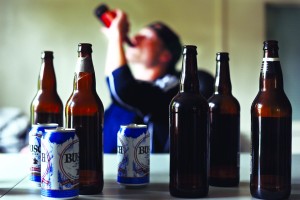 Deep cravings for alcohol can be caused by closeness or proximity to the substance which means depending on how obtainable and affordable one can get alcohol. Cravings for alcohol are intense and deep urges to drink which are products of a troubled state of mind or other external factors. They arise from a series of deep thinking about a particular challenge been faced. They cause insomnia, anxiety and depression.
Deep cravings for alcohol can be caused by closeness or proximity to the substance which means depending on how obtainable and affordable one can get alcohol. Cravings for alcohol are intense and deep urges to drink which are products of a troubled state of mind or other external factors. They arise from a series of deep thinking about a particular challenge been faced. They cause insomnia, anxiety and depression.
Alcohol addiction is a unique and personal problem which is relative to the individual. It could result from many factors which includes physical and mental health, duration of alcohol intake, stress, presence and proximity of alcohol to a person which includes bars and liquor stores.
Availability of alcohol in a way is tantamount to people getting addicted to it especially when it could be purchased at a lower price at bars or liquor stores. Instances where there are many alcohol outlets positioned near an addict’s location, it increases the tendency to continue in the act of alcohol addiction and cravings would be easily satisfied.
These stores become joints for those addicted and form a rendezvous point for drunkards. Liquor stores become retail outlets thus narrowing the purchase of alcohol to a domestic level and consequently initiating alcoholism. Bars and liquor stores also serve as channeling points for sales of illegal drugs, narcotics, stimulants, depressants and alcoholic supplements. A process which on the long run contributes to inhibition of alcoholism.
The unending desire to suppress stress and ease anxiety anchored by a need to cool the nerves make the local liquor store a top choice for many troubled individuals. The proximity to these stores also play a lead role. Having its location within the neighborhood leaves their activities unchecked by the appropriate body because of the close seller- buyer relationship maintained. This makes it a difficulty to stop their activities.
Being a profit oriented establishment, liquor stores could not help but care less about the influence of their products on the buyers. They are concerned with the lucrativeness of the business rather than issues arising such as alcoholic intoxication. This of course makes them a lead player, but an indifferent shareholder in the cause of alcoholism.
To eliminate alcoholism, it is important for the alcoholic to put a stop to visiting liquor shops and bars. This will control the ease of access to these drinks and check alcoholism and its related activities.